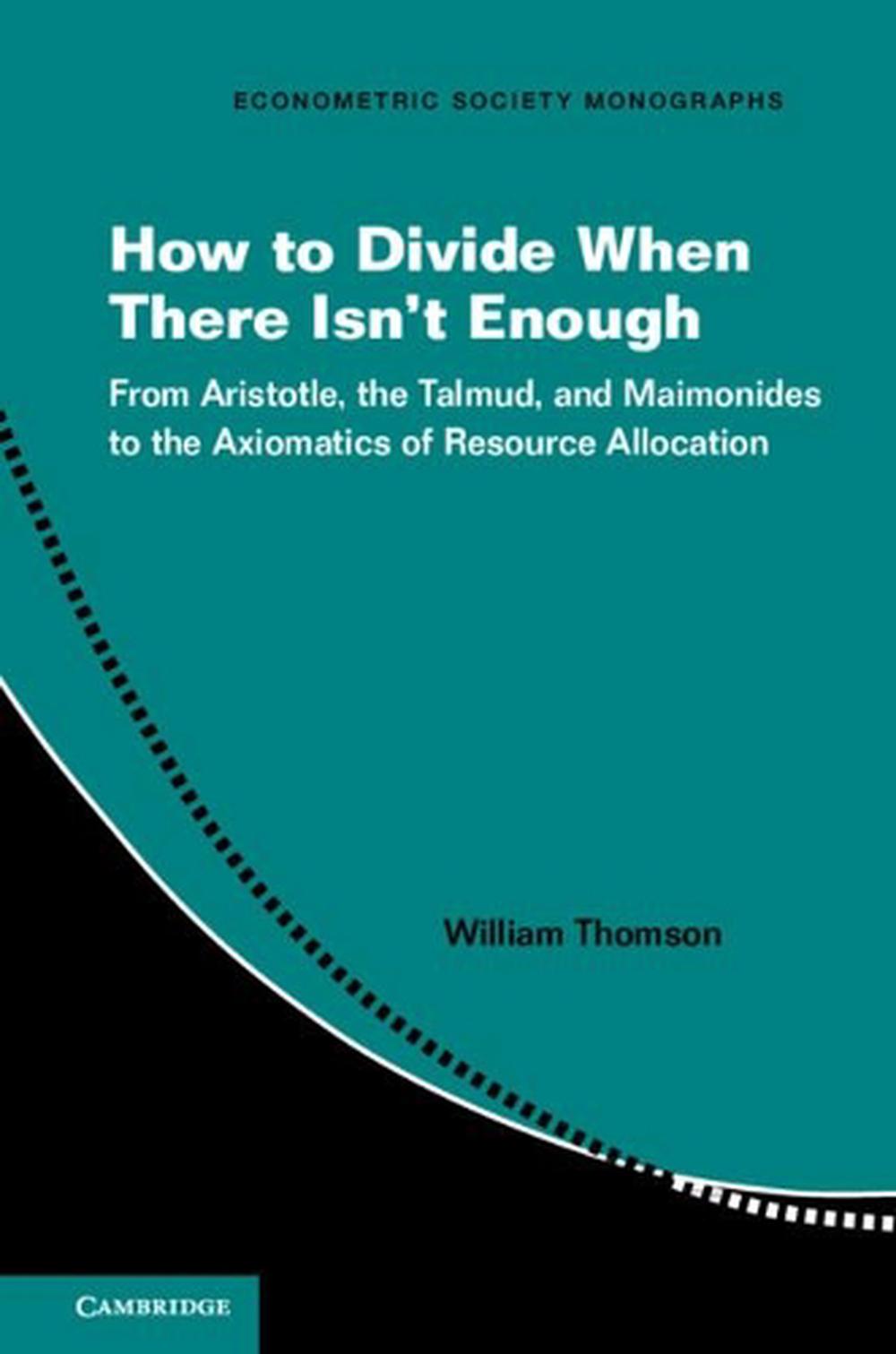
How to Divide When There Isn't Enough
from aristotle, the talmud, and maimonides to the axiomatics of resource allocation
$183.15
- Paperback
504 pages
- Release Date
5 September 2019
Summary
Fair Division: Resolving Conflicting Claims and Taxation
How to Divide When There Isn’t Enough develops a rigorous yet accessible presentation of the state-of-the-art for the adjudication of conflicting claims and the theory of taxation. It covers all aspects one may wish to know about claims problems: the most important rules, the most important axioms, and how these two sets are related.
More generally, it also serves as an introduction to the modern theory of economic des…
Book Details
| ISBN-13: | 9781316646441 |
|---|---|
| ISBN-10: | 1316646440 |
| Series: | Econometric Society Monographs |
| Author: | William Thomson |
| Publisher: | Cambridge University Press |
| Imprint: | Cambridge University Press |
| Format: | Paperback |
| Number of Pages: | 504 |
| Release Date: | 5 September 2019 |
| Weight: | 740g |
| Dimensions: | 227mm x 152mm x 29mm |
You Can Find This Book In
What They're Saying
Critics Review
‘William Thomson, one of the greatest academic advisors in economics worldwide, and a leading scholar in the field of resource allocation, has been carefully developing this project for more than two decades. I believe the book will be considered a classic right after being published.’ Juan D. Moreno-Ternero, Universidad Pablo de Olavide, Spain‘The design of rationing rules has inspired for nearly forty years a fascinating intellectual edifice of axiomatic postulates and mathematical results, reviewed here by the premiere author of that literature. Readers will recognize, or discover, William Thomson’s superb pedagogical talent in a text that is comprehensive, self-contained, and luminously clear.’ Hervé Moulin, Donald J. Robertson Chair of Economics, University of Glasgow‘The folksy title notwithstanding, this is an impressive study of modern economic design. The focus of the book is how best to adjudicate claims on a resource when the sum of those claims exceeds the amount or value of the resource. Thomson (Univ. of Rochester) displays his masterful command of the subject, of which he is certainly a prime architect … The book’s lessons apply to many real-world problems, among them bankruptcy claims, estate division, allocation of water rights, allocation of shares of the global carbon budget, and assignment of telecommunications frequencies … Thomson intends the book, and the work it summarizes, to provide a conceptual basis that will inform wise/smart societal choices going forward.’ K. J. Murphy, Choice‘… this book is, simply, a masterpiece. It is highly recommended for the broad audience of mainstream economists and a must read for those interested in normative economics …’ Juan D. Moreno-Ternero, Social Choice and Welfare
About The Author
William Thomson
William Thomson is the Elmer Milliman Professor of Economics at the University of Rochester, New York. He is the author of several books including A Guide for the Young Economist (2011) which has appeared in four translations, and over one hundred articles. In 2001, he won the University Award for Excellence in Graduate Teaching at the University of Rochester. He is a Fellow of the Econometric Society, the Society for Economic Theory, and the Game Theory Society.
Returns
This item is eligible for free returns within 30 days of delivery. See our returns policy for further details.




